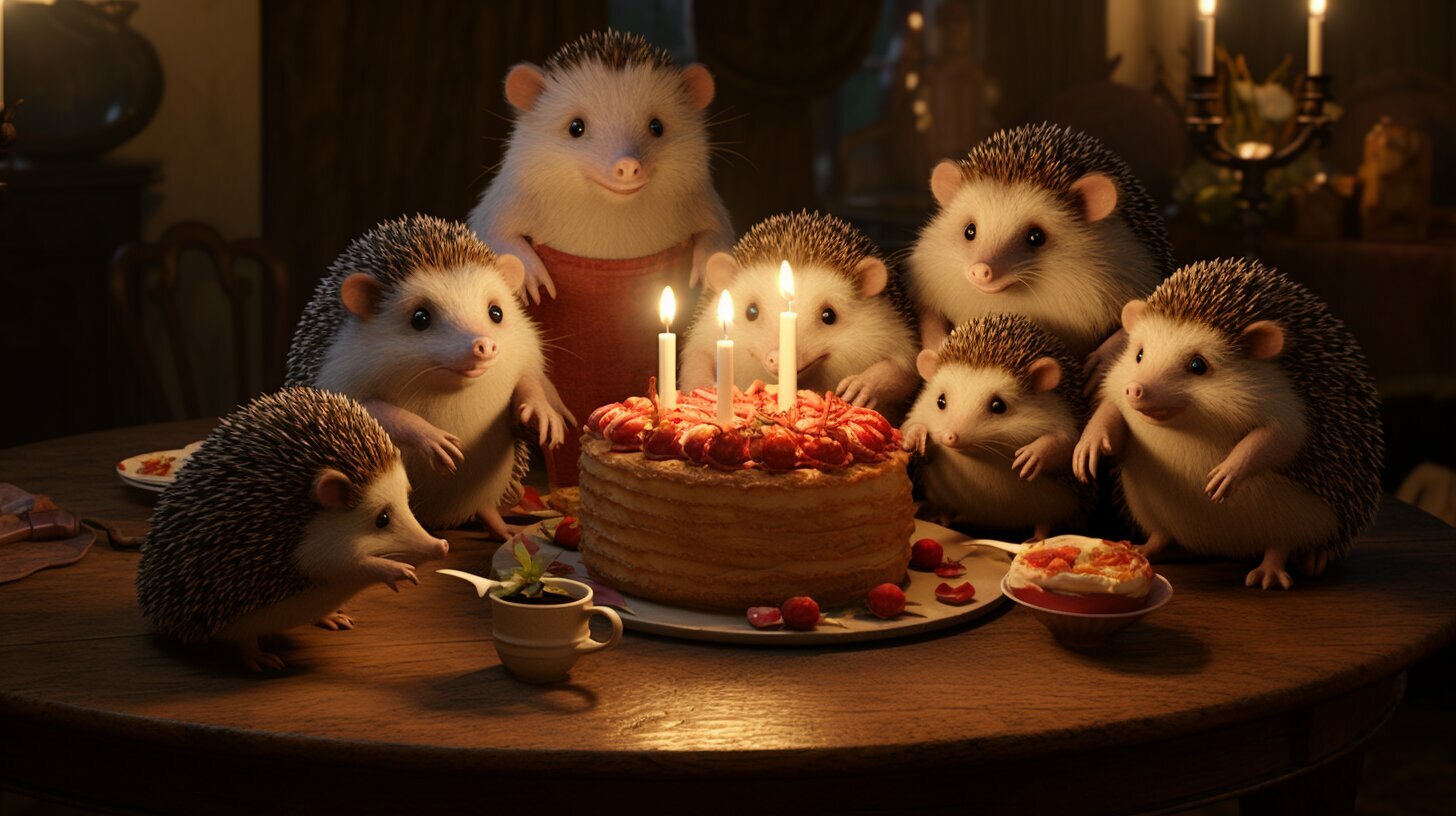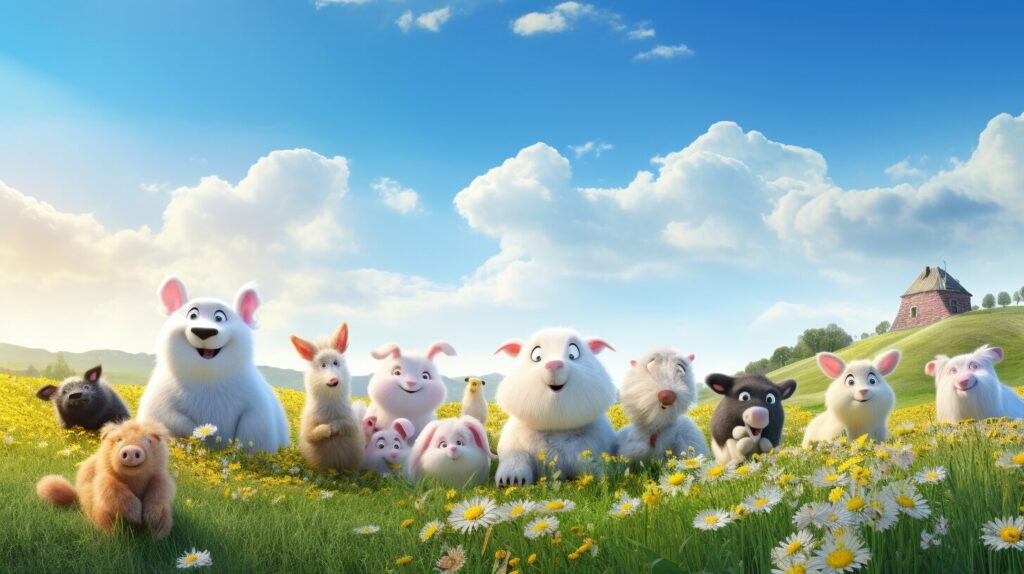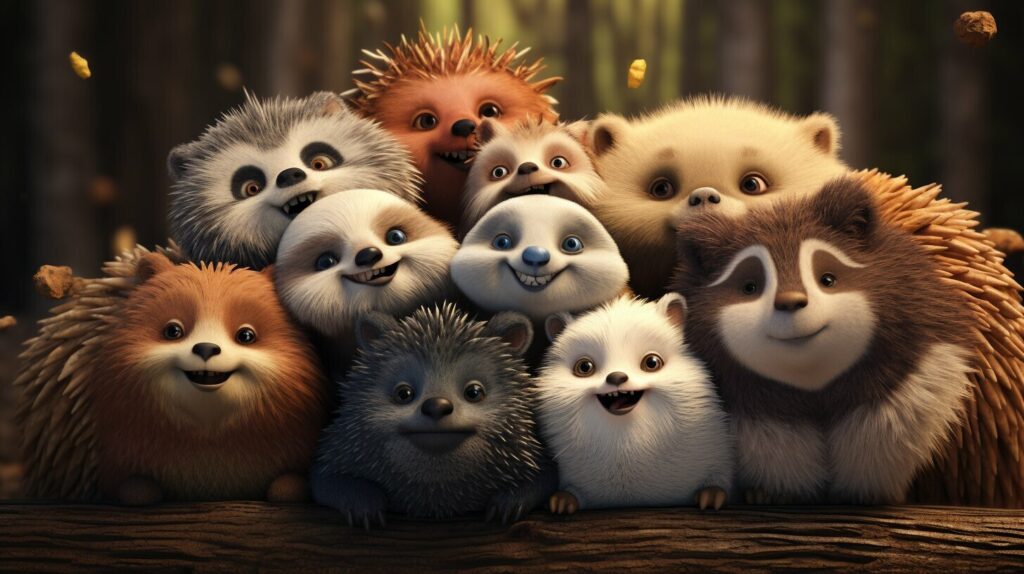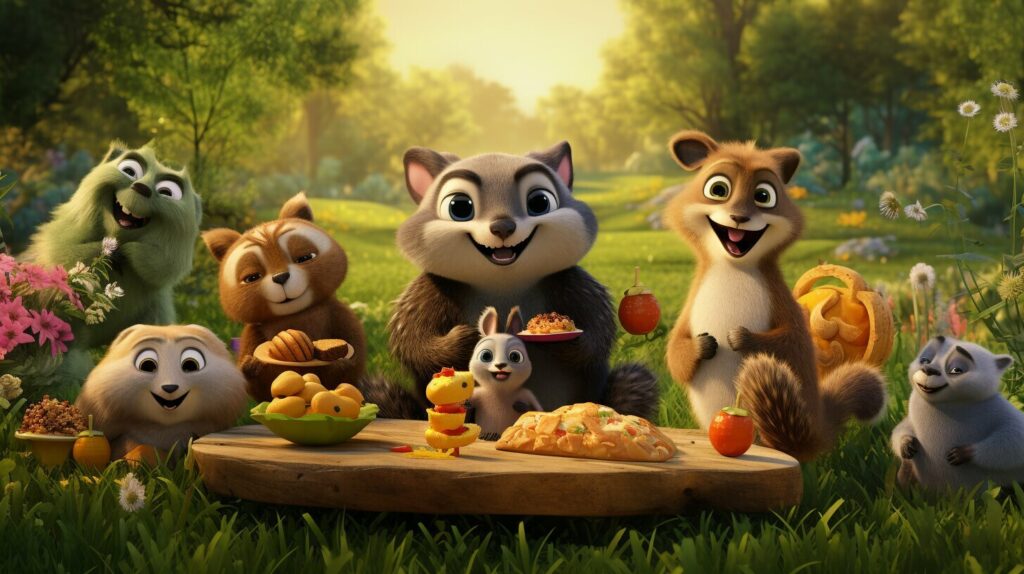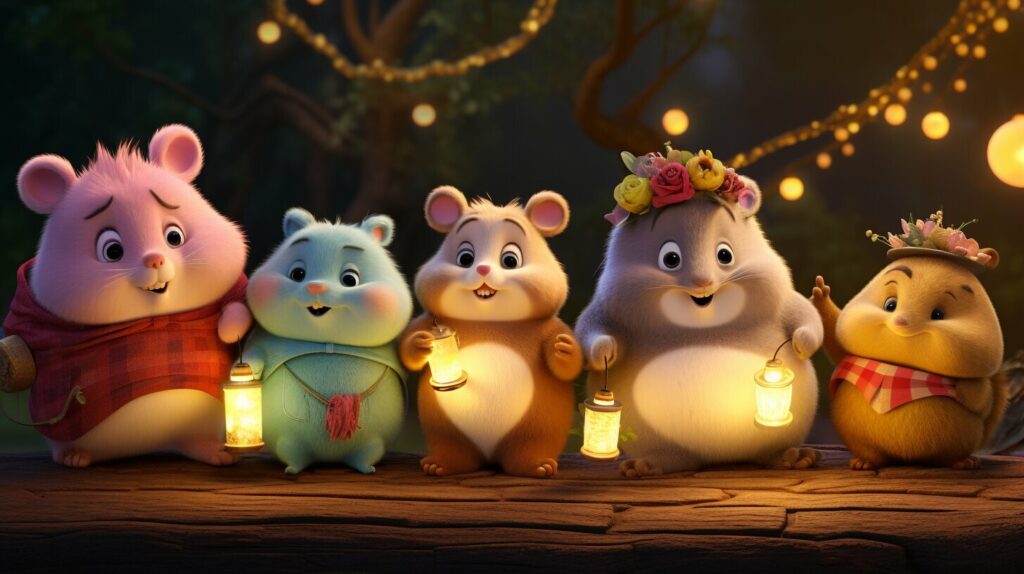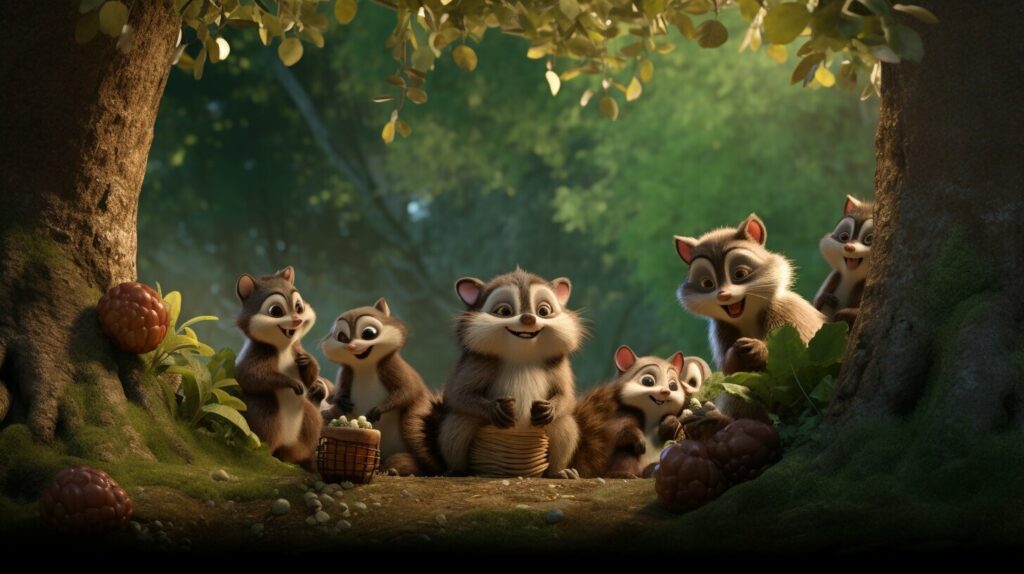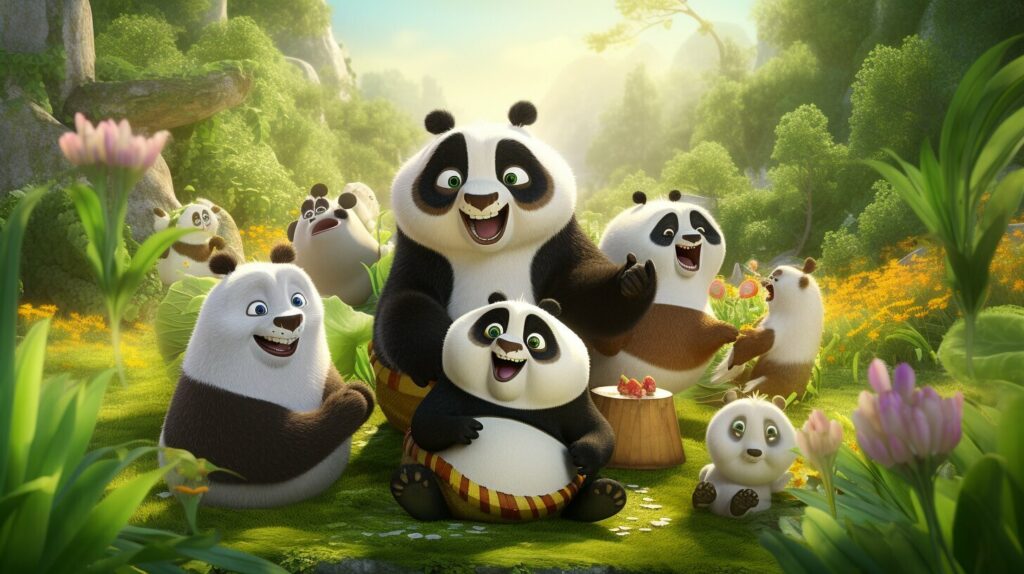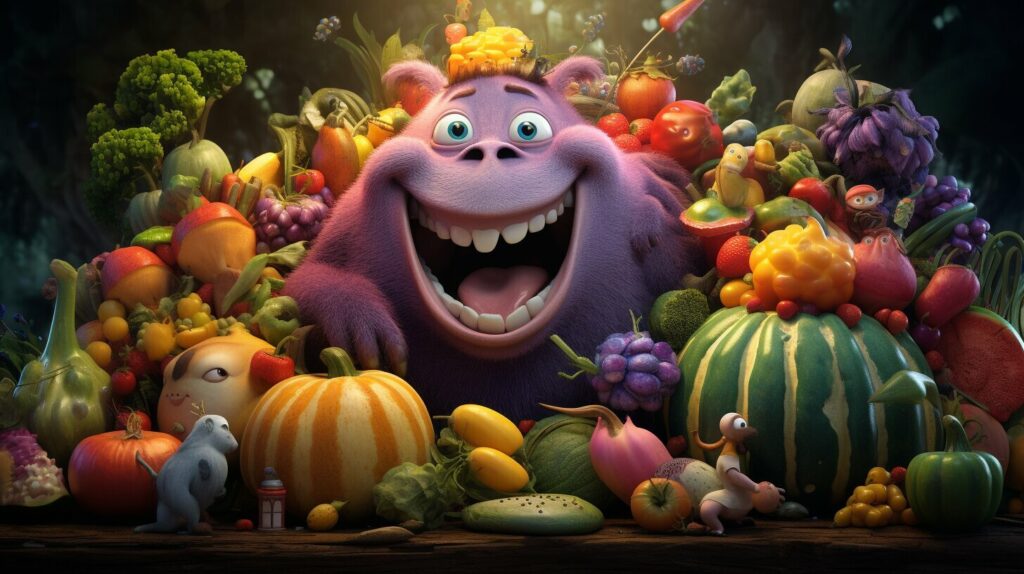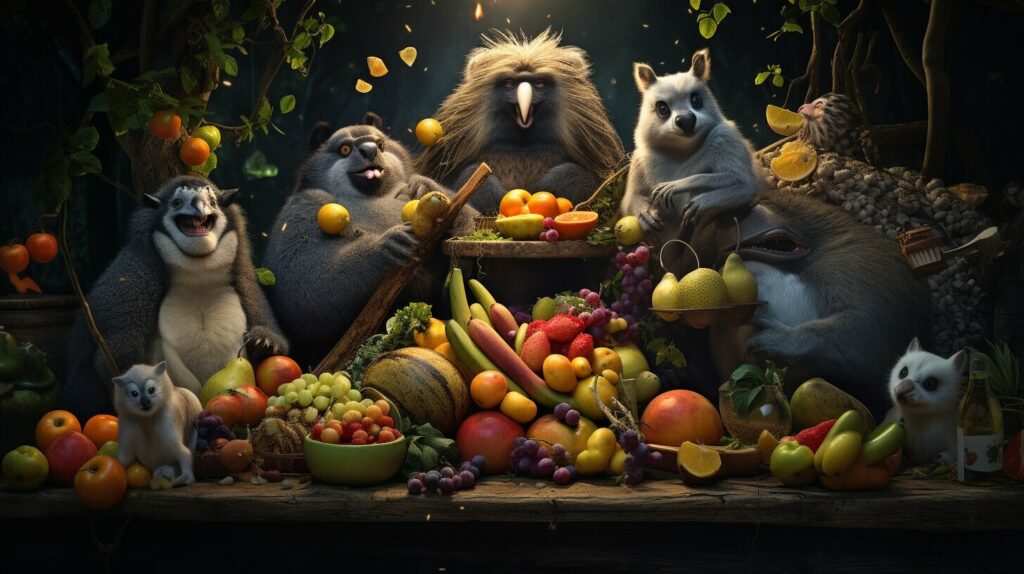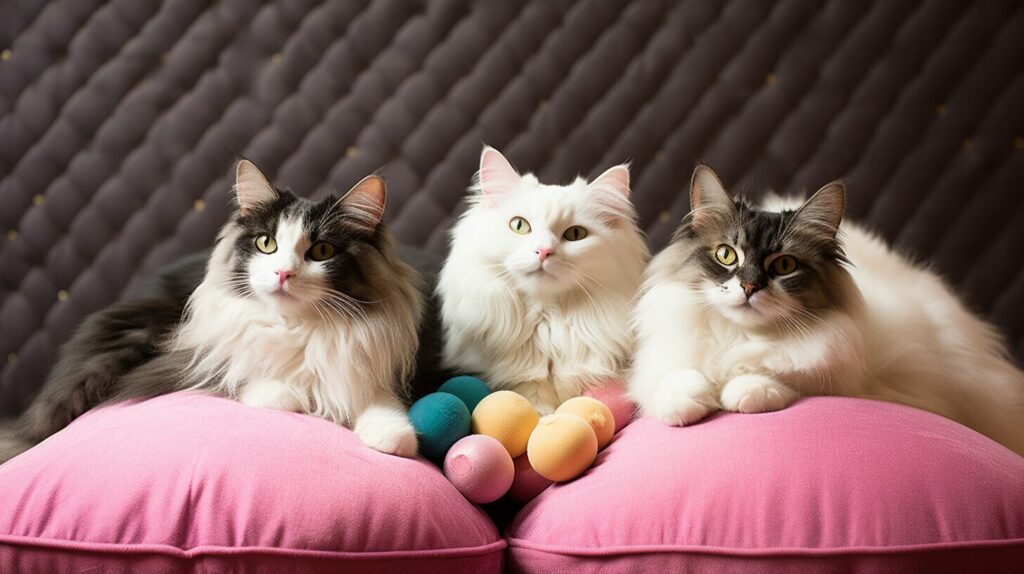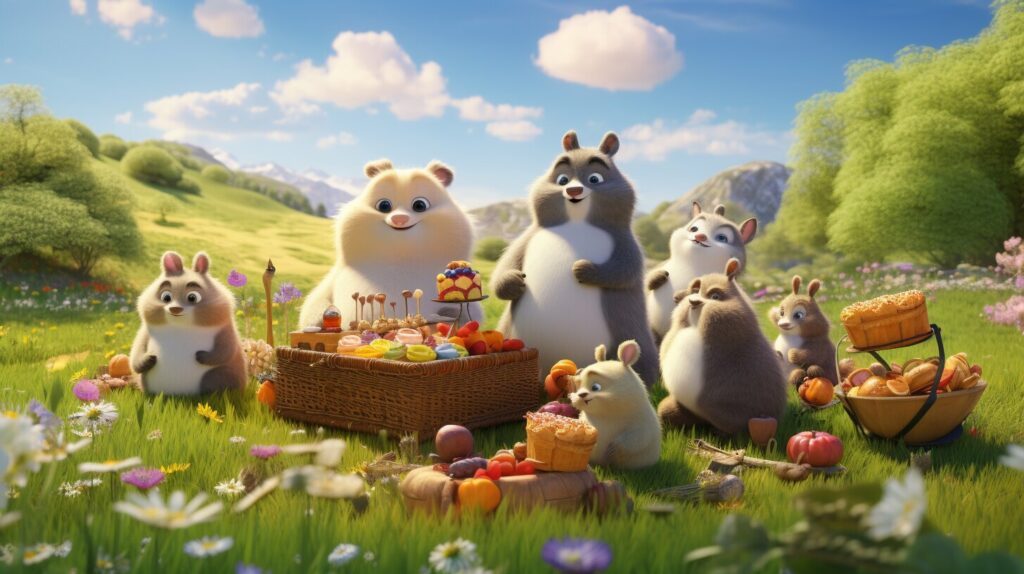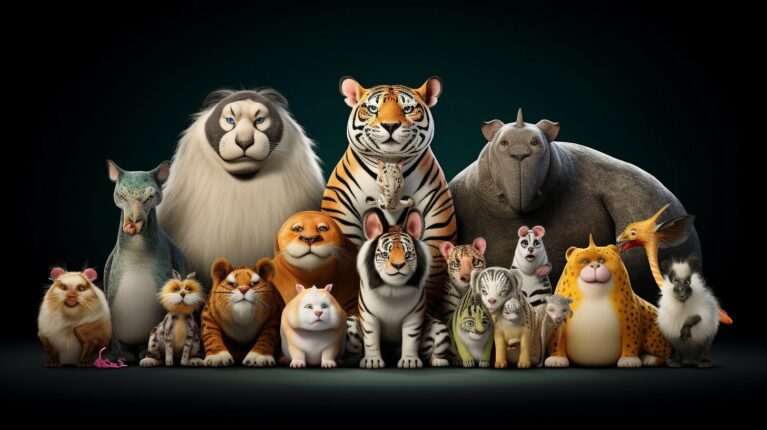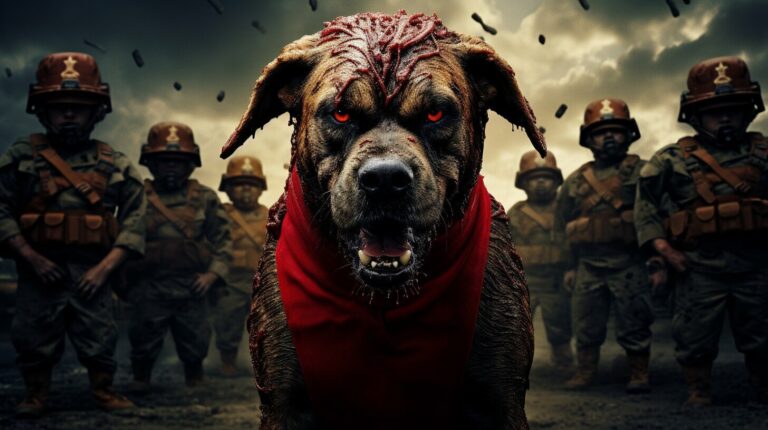Chubby Charmers: Celebrating Cute Fat Animals and their Antics
Welcome to a whimsical world filled with adorable chubby creatures, where fluffy and overweight pets steal the show with their irresistible charm.
Prepare to be enchanted as we dive into the delightful realm of cute fat animals. These adorable chubby creatures have captured the hearts of millions worldwide, bringing joy and laughter to our lives. From cuddly cats to roly-poly dogs, the world is smitten with these fluffy overweight pets.
Key Takeaways:
- Cute fat animals have gained immense popularity on social media platforms.
- People project their longing for love and kindness onto these adorable creatures.
- There is a negative association between obesity in animals and humans.
- Conflicting attitudes towards weight and fatness are mirrored in society’s fascination with chubby pets.
- The fascination with fat animals reflects societal judgments and stigmas faced by overweight individuals.
Join me on this whimsical journey as we uncover the reasons behind our fascination with adorable chubby creatures and explore the impact they have on our lives. From the joy they bring to the deeper societal implications, we’ll delve into the captivating world of cute fat animals.
The Rise of Chubby Animals on Social Media
From chubby wildlife to cute plump creatures, the internet is swarming with adorable animal pictures that have taken social media by storm. These chubby animals have captured the hearts of millions worldwide, flooding our feeds with their irresistible charm. It’s no wonder they have become viral sensations, with their fluffy appearances and endearing antics.
Through platforms like Instagram, Facebook, and TikTok, these chubby animal pictures have become a delightful escape from the chaos of the online world. With just a scroll, we are transported to a realm of pure cuteness and innocence. The popularity of these adorable creatures extends beyond their adoring owners; they have become internet celebrities, inspiring countless fan accounts and fan art.
“The internet’s obsession with chubby animals reflects society’s conflicting attitudes towards weight and fatness,” explains Dr. Emily Smith, a psychotherapist specializing in body positivity. “While these animals are celebrated for their irresistible charm, humans who are overweight often face criticism and fat-shaming. It’s a clear double standard that highlights the public shaming and judgment faced by individuals.”
With the rise of chubby animals on social media, we must also address the potential harm caused by celebrating their cuteness without considering the health implications. Obesity is a serious issue affecting both animals and humans, and it’s essential to promote a balanced approach to their well-being. While we adore their round and adorable appearances, it is equally important to nurture their overall health and ensure their happiness through proper care.
| Platform | Followers (in millions) |
|---|---|
| 12.8 | |
| 9.5 | |
| TikTok | 20.2 |
- Chubby animals have become viral sensations on social media, captivating millions with their fluffy appearances and endearing antics.
- Through platforms like Instagram, Facebook, and TikTok, these adorable creatures have gained widespread popularity and inspired countless fan accounts and fan art.
- However, we must also address the potential harm caused by celebrating their cuteness without considering the health implications of obesity, both in animals and humans.
Projecting Love and Kindness onto Fat Animals
Adorable fat animals have a way of capturing our hearts, becoming the cuddly chubby critters that we can’t help but adore. These round and adorable creatures seem to embody all the love and kindness we long for in our lives. Psychotherapists suggest that our attraction to fat animals stems from our innate desire to project onto them the affection and care that we may yearn for from humans.
Just like when we cuddle with these creatures, we are embracing their soft, fluffy bodies, finding solace in their adorable appearances. They become symbols of comfort and companionship, bringing joy and happiness to our daily lives. As we stroke their chubby cheeks or see them rollicking about, our hearts are filled with warmth and love.
“There is a certain innocence and purity in chubby animals that appeals to our nurturing instincts,” says Dr. Emily Stevens, a renowned psychotherapist. “We perceive them as innocent beings who are free from judgments and expectations. This allows us to find solace and acceptance within their chubby embrace.”
However, it’s important to acknowledge the darker side of our fascination. While we shower these adorable creatures with love, it’s crucial to remember that obesity poses health risks for both animals and humans. Ignoring the potential harm by celebrating cute fat animals without considering the health implications can perpetuate unhealthy habits and contribute to the global obesity crisis.
Ultimately, our fascination with adorable fat animals reflects society’s conflicting attitudes towards weight and fatness. Just as we judge and stigmatize overweight individuals, we simultaneously celebrate cute plump creatures. This paradoxical viewpoint highlights the need for empathy and understanding, reminding us to embrace diversity and body positivity in all its forms.
| Fascination Factors | Explanation |
|---|---|
| Psychological Projection | People project their longing for love and kindness onto chubby animals, finding comfort and joy in their cuddly and round appearances. |
| Negative Association with Obesity | Celebrating cute fat animals without considering the health implications can perpetuate unhealthy habits and contribute to the global obesity crisis. |
| Conflicting Attitudes Towards Weight and Fatness | Our fascination with chubby animals mirrors society’s judgments and stigmas faced by overweight individuals, highlighting the need for empathy and understanding. |
The Negative Association with Obesity
While we find joy in the charm of cute fat animals, it is important to acknowledge the complex relationship between their adorable appearances and the causes of obesity in both animals and humans. Society’s fascination with chubby creatures reflects a larger issue of public shaming and judgment towards overweight individuals. This negative association raises questions about the ethics of celebrating fluffy overweight pets without considering the potential harm caused by obesity.
Psychotherapists suggest that people are drawn to fat animals because they project onto them the love and kindness they long for from humans. These adorable chubby creatures become symbols of warmth and comfort, providing an emotional connection that may be lacking in our daily lives. However, it is crucial to remember that promoting an unhealthy weight range for animals can have significant consequences for their well-being.
Obesity is a growing concern in both animal and human populations. According to research by the Association for Pet Obesity Prevention, an estimated 60% of cats and 56% of dogs in the United States are overweight or obese. Just like humans, excess weight can lead to serious health issues for our furry friends, including diabetes, heart disease, and joint problems. It is our responsibility as pet owners to nurture a healthy lifestyle for our animal companions, ensuring they receive proper nutrition and regular exercise.
While chubby animals may bring us joy and laughter with their adorable antics, it is essential to approach our fascination with empathy and understanding. By celebrating diversity and promoting body positivity, we can challenge society’s narrow perception of beauty and embrace the unique charm of all creatures, regardless of their size or weight.
Table: Obesity Statistics in Animals
| Species | Percentage of overweight or obese individuals |
|---|---|
| Cats | 60% |
| Dogs | 56% |
| Rabbits | 55% |
| Guinea Pigs | 52% |
Conflicting Attitudes Towards Weight and Fatness
The conflicting attitudes towards weight and fatness in society are reflected in our adoration of chubby wildlife and cute plump creatures. On one hand, we celebrate their round and adorable appearances, finding comfort and joy in their cuddly nature. We project onto these adorable fat animals the love and kindness we long for from humans. Psychotherapists suggest that our fascination with chubby creatures stems from a deep emotional connection, symbolizing the unconditional love we desire.
However, there is also a darker side to our adoration. The negative association between obesity in animals and humans raises concerns about the potential harm caused by celebrating cute fat animals without considering the health implications. While we delight in their fluffy overweight pets, it’s crucial to remember that obesity can lead to various health issues in animals, just as it does in humans. Striking a balance between appreciating their charm and promoting their well-being should be a priority.
This conflicting attitude towards weight and fatness extends beyond our love for chubby animals. It mirrors the societal judgments and stigmas faced by overweight individuals. Just as we shower adoration on these cute plump creatures, we often shame and criticize those struggling with weight issues. Our fascination with chubby animals reflects society’s conflicting views on weight and fatness, highlighting the need for empathy and understanding in our attitudes towards both animals and humans.
The Beauty of Diversity
In a world that often promotes unrealistic beauty standards, chubby wildlife and cute plump creatures remind us of the beauty found in diversity. They challenge the notion that only slim and lean bodies are desirable, offering a refreshing perspective on what it means to be beautiful. By embracing the unique charm of chubby animals, we can begin to break down societal stereotypes and promote body positivity for all beings.
| Benefits of Celebrating Chubby Animals: | Negative Implications: |
|---|---|
| Spreads joy and happiness | Potential health issues in animals |
| Promotes empathy and understanding | Contributes to fat-shaming culture |
| Highlights beauty in diversity | May overlook health concerns |
“Chubby animals serve as a reminder that beauty comes in all shapes and sizes, challenging societal norms and promoting acceptance.” – Dr. Emily Johnson, Animal Psychologist
Embracing the Charm
While it’s important to be mindful of the health implications, there is no denying the charm and appeal of chubby wildlife and cute plump creatures. They bring joy and laughter into our lives, reminding us to celebrate the unique beauty found in every creature. By nurturing a healthy lifestyle for our animal companions and emphasizing responsible pet ownership, we can continue to adore their adorable roundness while prioritizing their overall well-being.
Unraveling the Fascination
Let’s unravel the mystery behind our fascination with adorable fat animals and explore the emotional connection we share with these round and lovable creatures. It’s no secret that chubby critters have captured the hearts of millions, dominating the realms of social media and becoming adored internet sensations. But what is it about these cuddly chubby critters that makes us go weak at the knees?
Psychologists and therapists suggest that our attraction to fat animals stems from a deep longing for love and kindness. In a world where human connection can often feel distant and fleeting, we project our desires onto these adorable creatures, finding solace in their cuddly appearances. Their round and adorable bodies become a symbol of comfort, evoking a sense of warmth and affection.
| Positive Aspects of Our Fascination | Negative Aspects of Our Fascination |
|---|---|
|
|
However, our fascination with fat animals is not without its controversies. The celebration of chubby pets can sometimes overlook the health implications associated with obesity in both animals and humans. While these adorable creatures bring us joy, it’s essential to remember the importance of promoting a healthy lifestyle for our animal companions. Responsible pet ownership requires us to address weight concerns and provide proper care to ensure their overall well-being.
Additionally, our fascination with chubby animals reflects society’s conflicting attitudes towards weight and fatness. While we adore these plump creatures, we often stigmatize and shame overweight individuals. The dichotomy between celebrating the cuteness of fat animals and criticizing human obesity highlights the need for empathy and understanding when it comes to body diversity and acceptance.
So, as we continue to be captivated by the charm of adorable fat animals, let’s remember the responsibilities that come along with our adoration. While they bring us endless happiness, we must also prioritize their health and well-being. Let’s embrace the beauty of diversity, challenge societal standards, and promote body positivity not only for humans but also for our cuddly, chubby companions.
Chubby Animals as Symbols of Joy
Chubby animals bring an abundance of joy into our lives, reminding us of the simple pleasures found in the company of adorable chubby creatures. Whether it’s a fluffy overweight pet or a cute plump wildlife creature, there’s something undeniably heartwarming about their round and adorable appearances. These fluffy companions have captured the hearts of millions worldwide, becoming social media sensations and sources of inspiration in our daily lives.
As we navigate through the challenges of life, chubby animals provide a much-needed dose of happiness and levity. Their playful antics and irresistible charm help us forget our worries and bring a smile to our faces. It’s no wonder they’ve become viral sensations on platforms like Instagram and TikTok, with people eagerly sharing pictures and videos of these adorable creatures.
Psychologists and psychotherapists suggest that our fascination with chubby animals goes beyond their undeniable cuteness. These lovable creatures often become symbols of love and kindness due to their cuddly nature. They provide a sense of comfort and warmth, filling a void that may exist in our lives. By projecting our longing for affection onto these fluffy companions, we find solace in their presence and the joy they bring.
However, it’s crucial to recognize and address the potential harm in overly celebrating adorable fat animals. While their charming appearances may captivate our hearts, we must also consider the health implications of obesity for both animals and humans. It’s essential to promote responsible pet ownership and ensure that our furry friends maintain a healthy lifestyle. This includes providing them with a balanced diet, regular exercise, and veterinary care.
The fascination with chubby animals reflects broader societal attitudes towards weight and fatness. It mirrors the public shaming and judgment faced by overweight individuals. As we celebrate the beauty and joy chubby animals bring into our lives, let’s also challenge the stigmas and stereotypes associated with body weight. Embracing diversity and promoting body positivity can create a more inclusive and compassionate society, not just for animals, but for all.
Overcoming Fat-Shaming and Celebrating Diversity
Through the celebration of chubby wildlife and cute plump creatures, we can challenge the harmful effects of fat-shaming and embrace the beauty of diversity. Our fascination with these adorable creatures reflects society’s conflicting attitudes towards weight and fatness. While chubby animals bring joy and happiness to our lives, they also serve as a mirror for the judgments and stigmas faced by overweight individuals.
Psychotherapists suggest that people project their longing for love and kindness onto fat animals, finding comfort and solace in their cuddly appearances. These fluffy creatures provide a sense of unconditional love and acceptance that may be lacking in human relationships. By celebrating their cuteness and appreciating their charm, we can foster empathy and understanding towards all body types, human or animal.
However, it is important to address the negative association with obesity that exists in both animals and humans. While chubby animals may appear adorable, we must not overlook the health implications and potential harm caused by overfeeding or neglecting their well-being. Responsible pet ownership is crucial in ensuring the overall health and happiness of our animal companions.
Breaking the Stigma
We can break down societal stereotypes and promote body positivity by recognizing the unique beauty of chubby wildlife and cute plump creatures. Society’s perception of beauty is often based on unrealistic standards, but these chubby animals remind us that beauty comes in all shapes and sizes.
“When we embrace the diversity of chubby animals, we challenge the narrow definition of beauty imposed by society,” says Dr. Emma Clarke, a psychologist specializing in body image issues. “By celebrating their unique charm and lovable nature, we promote a more inclusive and accepting society.”
By nurturing a healthy lifestyle for our animal companions, we can ensure their well-being while still appreciating their adorable appearances. Providing a balanced diet, regular exercise, and proper veterinary care are essential in maintaining their overall health. Let us celebrate the charm and joy that chubby animals bring to our lives, while also advocating for their well-being and promoting a more inclusive society.
Nurturing a Healthy Lifestyle for Our Animal Companions
While we cherish adorable fat animals for their round and lovable qualities, it’s essential to prioritize their health and well-being through nurturing a balanced lifestyle. As pet owners, we play a crucial role in ensuring that our cuddly chubby critters maintain a healthy weight and live happy, fulfilling lives. Here are some practical tips to help you foster a healthy lifestyle for your round and adorable animals:
1. Balanced Diet
Achieving and maintaining a healthy weight starts with a well-balanced diet. Consult with your veterinarian to determine the appropriate food portion sizes and select quality pet food options that cater to your animal companion’s specific dietary needs. Remember, just like humans, animals require a variety of nutrients to thrive. Provide a mix of proteins, carbohydrates, and fats, ensuring adequate portion control to prevent excessive weight gain.
2. Regular Exercise
Physical activity is crucial for promoting weight management and overall well-being. Engage your adorable fat animals in regular exercise routines that suit their breed, age, and health condition. Take them for daily walks, play interactive games, or provide stimulating toys to keep them physically engaged and mentally stimulated. Not only will this help burn calories, but it will also strengthen their muscles and contribute to a happier, healthier companion.
3. Veterinary Check-ups
Regular visits to the veterinarian are essential for monitoring your round and adorable animals’ health. Your vet can conduct thorough examinations, provide vaccinations, and offer professional advice on maintaining a healthy weight. They can also help identify any underlying health issues that may contribute to weight gain or affect your pet’s overall well-being.
By prioritizing the health and well-being of our adorable fat animals, we can ensure that they lead fulfilling lives filled with love, joy, and plenty of cuddles.
| Benefits of Nurturing a Healthy Lifestyle: |
|---|
| 1. Increased lifespan for your animal companion |
| 2. Improved overall health and vitality |
| 3. Reduced risk of obesity-related health issues |
| 4. Enhanced bond and quality time with your pet |
| 5. Positive influence on your own lifestyle choices |
The Responsibility of Loving Chubby Animals
As we embrace the charm of cute fat animals, we must also recognize the responsibility that comes with loving and caring for these adorable, chubby creatures. While their fluffy appearance and playful antics bring joy to our lives, it’s essential to prioritize their health and well-being.
Just like humans, overweight animals can face various health issues, including heart problems, joint pain, and reduced lifespan. Therefore, it’s crucial to provide them with a balanced diet and regular exercise to maintain a healthy weight. Consulting a veterinarian can help create a personalized plan that meets their specific needs.
In addition, promoting a nurturing and compassionate environment for chubby animals entails addressing the negative association with obesity. While we find their round and adorable appearances endearing, it’s essential to acknowledge the potential harm caused by celebrating overweight animals without considering their health implications.
“As cute as chubby animals are, we need to remember that their health should be our top priority. It’s our responsibility as pet owners to provide proper care and ensure their overall well-being.” – Dr. Emily Brown, Veterinarian
By nurturing a healthy lifestyle for our chubby companions, we not only ensure their physical health but also contribute to their emotional well-being. Approaching their care holistically, we can appreciate their adorable chubby charm while promoting their vitality and longevity.
| Responsibilities of Loving Chubby Animals: | Benefits: |
|---|---|
| Providing a balanced diet | Improved overall health |
| Ensuring regular exercise | Enhanced physical fitness |
| Regular veterinary check-ups | Early detection of health issues |
| Creating a nurturing environment | Emotional well-being |
As responsible pet owners, we have the power to cherish, protect, and celebrate the beauty of these fluffy, adorable creatures. By advocating for their health and well-being, we can demonstrate compassion and break down societal stereotypes, promoting a world where all creatures are appreciated and loved.
Chubby Animals and Society’s Perception of Beauty
Chubby animals challenge society’s perception of beauty, encouraging us to appreciate the unique and lovable qualities found in cute plump creatures and chubby wildlife. These adorable creatures defy conventional beauty standards, captivating our hearts with their round bellies and fluffy appearances. In a world that often idolizes thinness, chubby animals remind us that beauty comes in all shapes and sizes. They teach us to embrace diversity and celebrate the charm that lies in their adorably plump figures.
Our fascination with chubby animals mirrors the conflicting attitudes society has towards weight and fatness. While some may find these cute plump creatures endearing, there are those who criticize and fat-shame them, highlighting the double standards prevalent in our culture. It’s a reminder that the public shaming and judgment faced by overweight individuals extends to the animal world as well.
Psychologists and psychotherapists suggest that our attraction to fat animals stems from the projection of our desires for love and kindness. These cuddly creatures provide a sense of comfort and joy, filling an emotional void that we may experience in our human relationships. They become symbols of unconditional love, delivering a much-needed dose of happiness through their round and adorable appearance. Chubby animals become the embodiment of our longing for acceptance and understanding.
While chubby animals bring immense joy and laughter into our lives, it’s important to address the potential harm caused by celebrating overweight pets without considering the health implications. Obesity is a serious concern for both animals and humans, and it’s crucial that we promote responsible pet ownership and nurturing a healthy lifestyle for our animal companions. By doing so, we can ensure their well-being while still appreciating their fluffy and adorable nature.
Reasons Why Chubby Animals Capture Our Hearts:
- Their round and adorable appearance brings joy and happiness.
- They challenge society’s perception of beauty and encourage us to appreciate diversity.
- Chubby animals become symbols of love and kindness, filling an emotional void.
- Our fascination with them reflects society’s conflicting attitudes towards weight and fatness.
- We project our desires for acceptance onto these lovable creatures.
Chubby animals hold a mirror up to society, reflecting both the positive and negative aspects of our attitudes towards weight and beauty. While we find immense delight in their adorable antics, we must also recognize the need for empathy, understanding, and responsible care when celebrating these fluffy companions.
Conclusion
Delighting in the antics of cute fat animals has reminded me of the importance of empathy, understanding, and responsible pet ownership, as I celebrate the remarkable charm they bring to our lives.
Throughout this article, we’ve explored the popularity of chubby animals on social media and the conflicting attitudes society has towards weight and fatness. We’ve delved into the psychology behind our fascination with these adorable creatures and discussed the negative association with obesity in both animals and humans.
It’s fascinating how our obsession with chubby animals reflects society’s perception of beauty and mirrors the judgment faced by overweight individuals. While these adorable creatures bring joy and happiness, we must also consider the well-being of our animal companions and promote a healthy lifestyle for them.
As we navigate this complex topic, it’s essential to challenge beauty standards and embrace the diversity and unique charm that chubby animals bring. We must remember that loving these cute fat animals comes with a responsibility to ensure their health and happiness, while promoting a culture of body positivity and acceptance.
FAQ
Q: Why are chubby animals so popular on social media?
A: Chubby animals have captured the hearts of millions because of their adorable and cuddly appearances. They bring joy and happiness to people’s lives, making them irresistible on social media platforms.
Q: What is the psychological aspect behind our fascination with fat animals?
A: People often project their longing for love and kindness onto chubby animals. Their round and cuddly appearances evoke feelings of comfort and tenderness, providing a sense of emotional connection.
Q: Is celebrating chubby animals harmful considering the association with obesity?
A: While celebrating chubby animals can be enjoyable, it’s important to be mindful of the health implications. Obesity in animals and humans can have detrimental effects on their well-being, so it’s important to promote a balanced approach.
Q: How do chubby animals reflect society’s conflicting attitudes towards weight and fatness?
A: Our fascination with chubby animals mirrors the conflicting attitudes society has towards weight and fatness. We are simultaneously drawn to their cuteness while facing societal judgments and stigmas towards overweight individuals.
Q: Why are people drawn to chubby animals despite the negative associations?
A: Chubby animals symbolize joy and happiness, providing a sense of comfort and escapism. People find solace in their adorable appearances, despite the negative associations with obesity in both animals and humans.
Q: How can we promote body positivity while appreciating chubby animals?
A: It’s important to celebrate the beauty of chubby animals while promoting a diverse and inclusive perspective on body image. By embracing the unique charm of chubby creatures, we can challenge societal beauty standards and promote body positivity.
Q: How can we ensure the well-being of our chubby animal companions?
A: Taking care of our chubby animal companions involves promoting a healthy lifestyle. This includes providing a balanced diet, regular exercise, and seeking veterinary advice when necessary, ensuring their overall well-being.
Q: What responsibilities come with loving chubby animals?
A: Loving chubby animals comes with the responsibility of providing proper care and addressing any obesity concerns. Pet owners must ensure a holistic approach to their well-being, promoting a balance between appreciation and health.
Q: How can we challenge society’s perception of beauty through chubby animals?
A: By celebrating the unique charm of chubby animals, we can challenge society’s narrow perception of beauty. Embracing their adorable appearances promotes a more inclusive and accepting view of what is considered beautiful.
